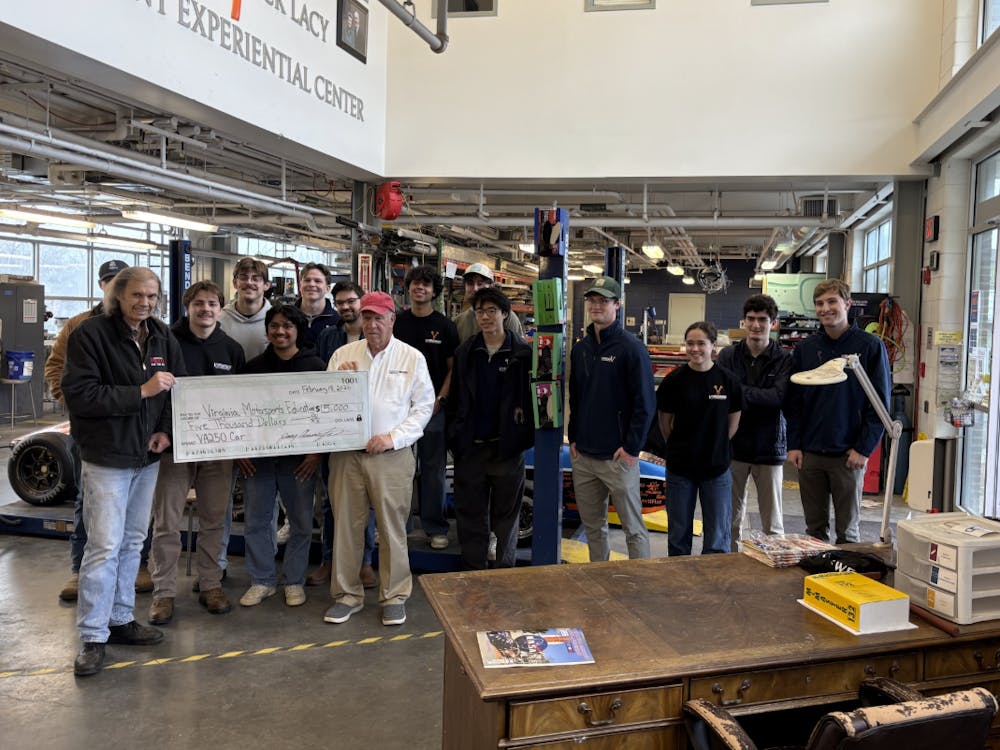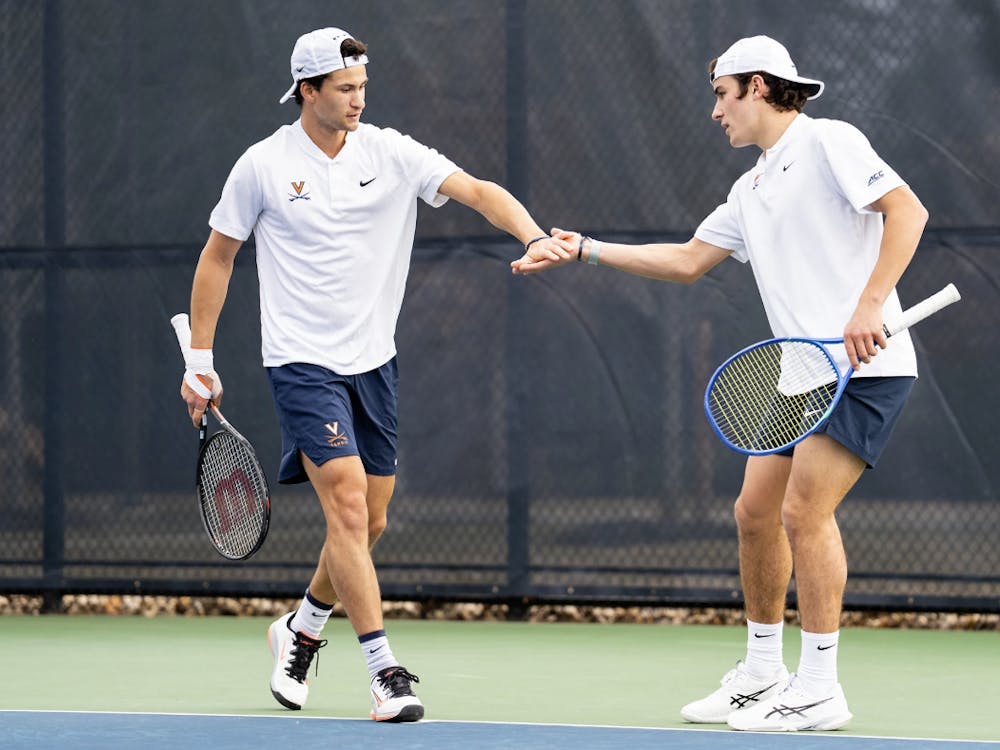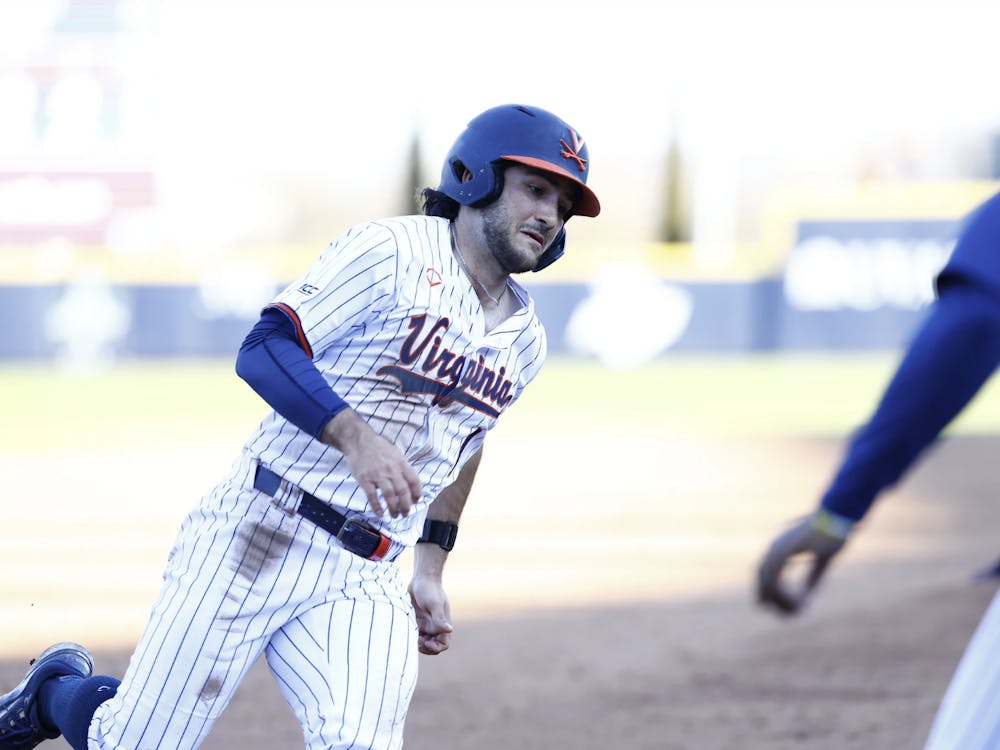Last week, the Virginia Festival of the Book was held here in Charlottesville and one of my new favorite authors, Warren St. John was in attendance. He is most famous for his sports non-fiction book "Rammer Jammer Yellow Hammer." Being the on-the-ball reporter that I am, I missed his book signing and only e-mailed him after he had left Charlottesville. But I was able to get a hold of him and set up a phone interview.
Before we go into some of his Q&A, I'll lay some ground work for you. St. John is the thinking fan personified. He constantly wants to figure out what drives the fanaticism behind sports spectators. In his book, St. John tells of how he followed the 1999 Alabama football team and its roving fan base as both an anthropological reporter and an Alabama fan. Along the way, he immerses himself in the culture that is Alabama football, all the while trying to ask the question, "Why do sports fans care?" From talking to him, I can tell he has begun to find some answers to that question, but his quest is far from over. He is a deep thinker with a sharp sense of humor who cares passionately about college football, and he weighed in on several topics, from his book and SEC football to the Sea of Orange and what it's like to be a sports fan.
What is it about your story that really connects with a lot of people?
I feel like the people that I met along the way are incredibly rich, interesting and complex characters. I think that people who are sports fans see themselves in the role of me or the other characters in the book. One of my ideas was that all fans go through the same emotional ups and downs. And the other group that I hear from a lot is people who live in the U.S. and feel sort of alienated by sports culture. They've never really had a team and they've always wondered what was up with that.
What was the favorite part of your story and that season?
As a fan, one of the most exciting parts was the game where Alabama beat Florida. As a reporter, it turned out that a couple of the real low points in the season (Alabama's losses to La. Tech and Tennessee) really ended up revealing a lot to me about myself and what was going on around me. I was lucky -- in a way -- to get this incredible range of emotion.
I wrote a column about the uniqueness of SEC football after attending the Florida-Tennessee game this year. How do you explain the phenomenon that is SEC football?
I think what's different about SEC football is that when you're in a southern state, almost everyone has an opinion on the game. You have this incredible collective experience that is harder to come by the further north you get. Because it's more of a cultural event, more people become invested in it. I think that adds to the intensity of it. I think no one in the South would ever think of getting married on a big-game weekend if they wanted people to show up at their wedding. In New York, [where he lives] it would never cross your mind to ask what the schedule of the Yankees was when you plan your wedding.
Note: In the book, St. John met a couple who skipped their own daughter's wedding to see an Alabama game. The most interesting part for St. John was that, when asked, the couple couldn't really explain why they did.
It turns out most fans are not very introspective about what it is they do and don't like about the teams. They just do it. It's this raw and instinctive, reflexive activity. I wanted to try to introduce some level of introspection to the whole experience.
How was your experience at U.Va.?
I heard from a lot of people [in Charlottesville], and they were wondering how they might get that "SEC experience" at Virginia. And obviously it takes time for something like that to happen, but it's really hard to manufacture that. In the South, football got tied up in the regional inferiority complex. You know, poor farmers, poor guys who didn't feel they were getting the recognition that they thought they deserved economically, socially, politically, [they thought] they could recoup some of that esteem on the football field. Football became a proxy for a lot of other deeply-rooted cultural issues. That's part of why it became such a big deal there, and it's hard to completely manufacture that from scratch. No matter how big your stadium is, no matter how many Jumbotrons you put in, you can't really substitute that element.
That's interesting, because I think here at U.Va., when Coach Groh came in, he started to try to manufacture that atmosphere, where the stadium was to be a "Sea of Orange," where everyone wears orange now at football games; whereas traditionally, U.Va.'s thing was to wear coat and ties and sundresses.
People told me that. When I heard that, I thought it was interesting because at SEC schools, kids wear coats and ties. You don't have to be in a T-shirt to be a good fan. I know that at the Ole Miss games, Alabama and Auburn games, there is an element of "we dress up in a way because it's such an important event." You can wear a T-shirt anywhere.
What's been your favorite sports story of the past year?
My favorite sports story was the guy Christopher Noteboom, who ran on the field at a Philadelphia Eagles game to spread his mother's ashes at midfield. To me, that was a noble moment of fandom.
What are you working on next?
I'm doing a couple things. I'm editing and writing an introduction for an ESPN book that's going to come out in a little over a year. It will be an ESPN Handbook to Fan Psychotic Behavior. It will be a satirical "how to" guide on how to tear down a goal post, how to catch a foul ball, that kind of thing.






